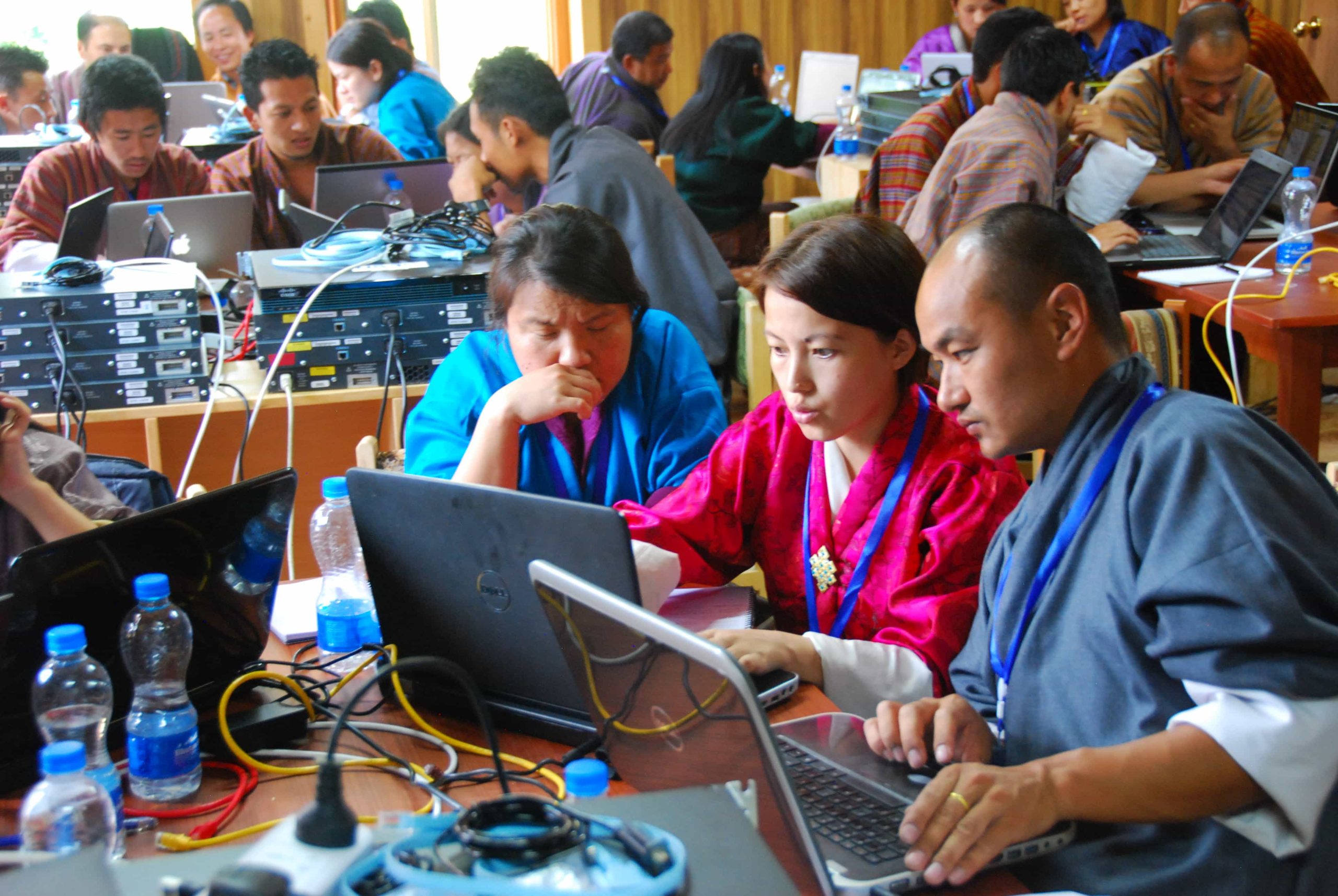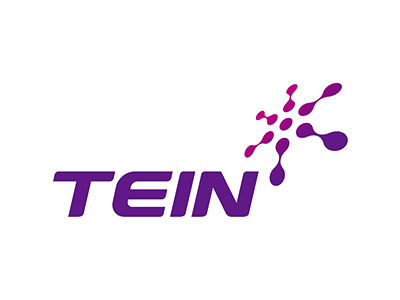NSRC: a globetrotting training team
A key requirement for sustainable NRENs and their connected institutions is the availability of skilled technical staff able to set up and manage networks efficiently and with confidence. Securing such a pool of engineering expertise may prove challenging for novice NRENs, particularly in emerging regions, and calls for technical training support and sharing of best practice. Providing this very support lies at the heart of the activities of the University of Oregon-based Network Startup Resource Center (NSRC).
Through hands-on, lab-based curricula and a request-driven train-the-trainers approach, for 26 years Steve Huter and his enthusiastic team have been providing technical capacity development to thousands of network engineers working in hundreds of R&E institutions in over 130 countries to augment networking expertise around the world.
The winning formula: a hands-on, demand-driven train-the-trainer approach
Providing a helping hand across the Asia-Pacific region
In 2015-16, during the EU-funded TEIN4 project phase, the NSRC worked in close cooperation with networking organisation TEIN*CC to conduct a series of network training and human capacity development programs with R&E institutions across the Asia-Pacific region. The eleven programs in nine countries (Bangladesh, Bhutan, Laos, Malaysia, Myanmar, Nepal, Philippines, Sri Lanka and Thailand) included direct engineering assistance engagements to improve the infrastructure and network operation centers for the hosting NREN.
Working in cooperation with TEIN*CC staff and member NRENs, NSRC teams delivered training workshops on the topics of: Campus Network Design and Operations, Linux System Administration, Routing and the Border Gateway Protocol (BGP) for NRENs, IPv6, Virtualization and the tools and techniques for building a Network Operations Center.
During each workshop, the participants spent a majority of their time with hands-on activities, working to install, configure and use network tools to simulate the building of operational networks in a safe, lab environment. Hands-on experiential learning is critical for successful technical training workshops. With this in mind, NSRC has designed and implemented portable virtual training platforms so that students have their own router, switches and servers to work with. This helps to reinforce topics being taught through hands-on, practical application of the materials.
TEIN and NSRC worked under a Memorandum of Understanding that included support from TEIN*CC to provide both network training programs and direct engineering assistance (DEA) on six separate occasions to five TEIN member NREN communities. These activities trained over 500 men and women in the TEIN region and the DEA activities took place at nine universities and three Research and Education Network (REN) core infrastructure locations.
NSRC model for building network infrastructure and human resources
- Combines technical training and human resource development activities
- Direct engineering assistance to improve operational infrastructure
- Participatory development of a request-driven approach is critical to successful outcomes
- Local hands cultivating local expertise leads to scaling of national and regional capabilities
Why focus on campus networks?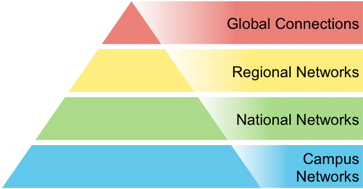
- The physical network is the transport layer. Without it, nothing else is possible.
- The campus network is the foundation for research and education activities.
- To optimally utilize network capacity, equipment and personnel, it is essential to design and build well-structured university networks, with all of the campus segments and academic departments included.
- There is a clear need to scale rapidly so the current phase of investments succeeds.
- No scientist is connected directly to a national R&E network. They are all connected to campus or enterprise networks for access.
By improving connectivity through TEIN’s dedicated, high-speed network, it is possible to improve both campus networks and interconnection of R&E networks in all of the TEIN member countries. Mirroring experience elsewhere in the world, enabling academic access to and use of the internet eventually produces graduates familiar with the internet and its applications and equipped to enter into the private sector to offer internet services to the public.
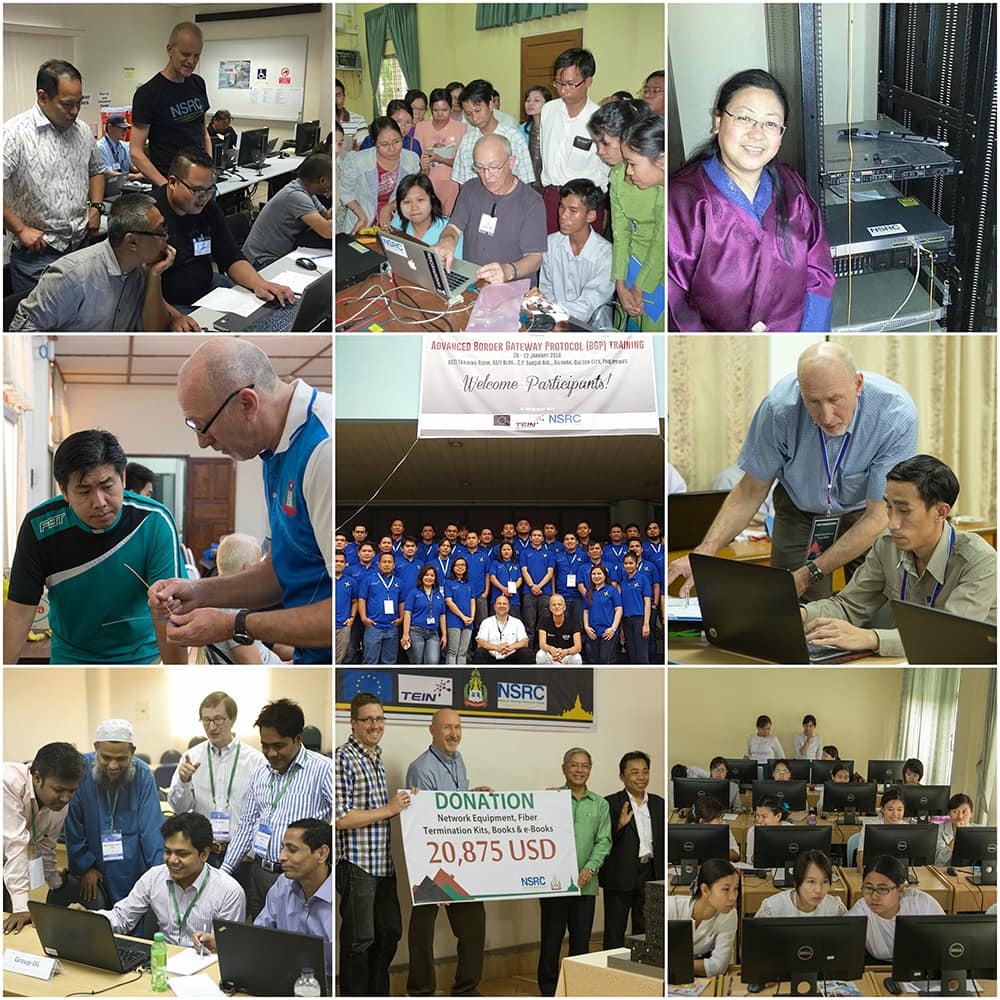
Overview of workshops and DEA
- DrukREN Campus Network Design and Linux System Administration Workshops and Direct Engineering Assistance, 7-21 September 2015, Thimphu, Bhutan
- TEIN Network Operations Center Workshop at the Asian Institute of Technology, 12-16 October 2015, Bangkok, Thailand
- Philippines Research, Education, and Government Information Network (PREGINET) Border Gateway Protocol (BGP) Routing Workshop, 20-22 January 2016, Quezon City, Philippines
- South Asian Network Operators Group (SANOG) 27: Routing/IPv6 and Virtualisation Workshops, 28 January – 1 February 2016, Kathmandu, Nepal
- National University of Laos (NUOL) and Lao Education and Research Network (LERNET) Campus Network Design Workshop and Direct Engineering Assistance, 14-22 March 2016, Vientiane, Laos
- Myanmar Network Design & Operations Workshop and Direct Engineering Assistance, 6-16 June 2016, Yangon, Myanmar
- DrukREN (Bhutan Research Education Network) Direct Engineering Assistance, 29 August – 7 September 2016, Bhutan
- Lanka Research and Education Network (LEARN) Direct Engineering Assistance, 5-7 October 2016, Colombo, Sri Lanka
- Bangladesh Research and Education Network (BDREN) Campus Network Design and Operations Workshop, 16-20 October 2016, Dhaka, Bangladesh
- Malaysia Research and Education Network (MyREN) TEIN Network Operations Workshop, 30 October – 4 November 2016, Kuala Lumpur, Malaysia
- DrukREN Direct Engineering Assistance Follow-up, 11-13 November 2016, Bhutan
In Bhutan, Myanmar, Laos and Sri Lanka, NSRC provided more intensive direct engineering assistance in cooperation with TEIN*CC to help improve operational network infrastructure, working shoulder-to-shoulder with local network staff.
Benefits to the TEIN region
NSRC works to build human capacity and expertise in the areas of routing, campus network design, network monitoring and management, system administration and security so that institutions can properly design, implement and run high-speed networks on their own, with their network personnel leading the operations and growth of the networks. In addition to capacity building, NSRC works alongside local network engineers to provide direct engineering assistance to make recommended changes, install and configure newly donated network hardware from the NSRC, and to verify that local personnel can do this on their own.
In helping build the human capacity as well as TEIN members’ physical network capacity, NSRC has helped to provide a stronger foundation for research and education communities across the TEIN region, which in turn facilitates more open scientific advancement and discovery for the benefit of TEIN member countries and their citizens.
Activities since 2016 and outlook for the future
Since the successful completion of the TEIN4 project phase, NSRC has continued to be actively involved in the region. 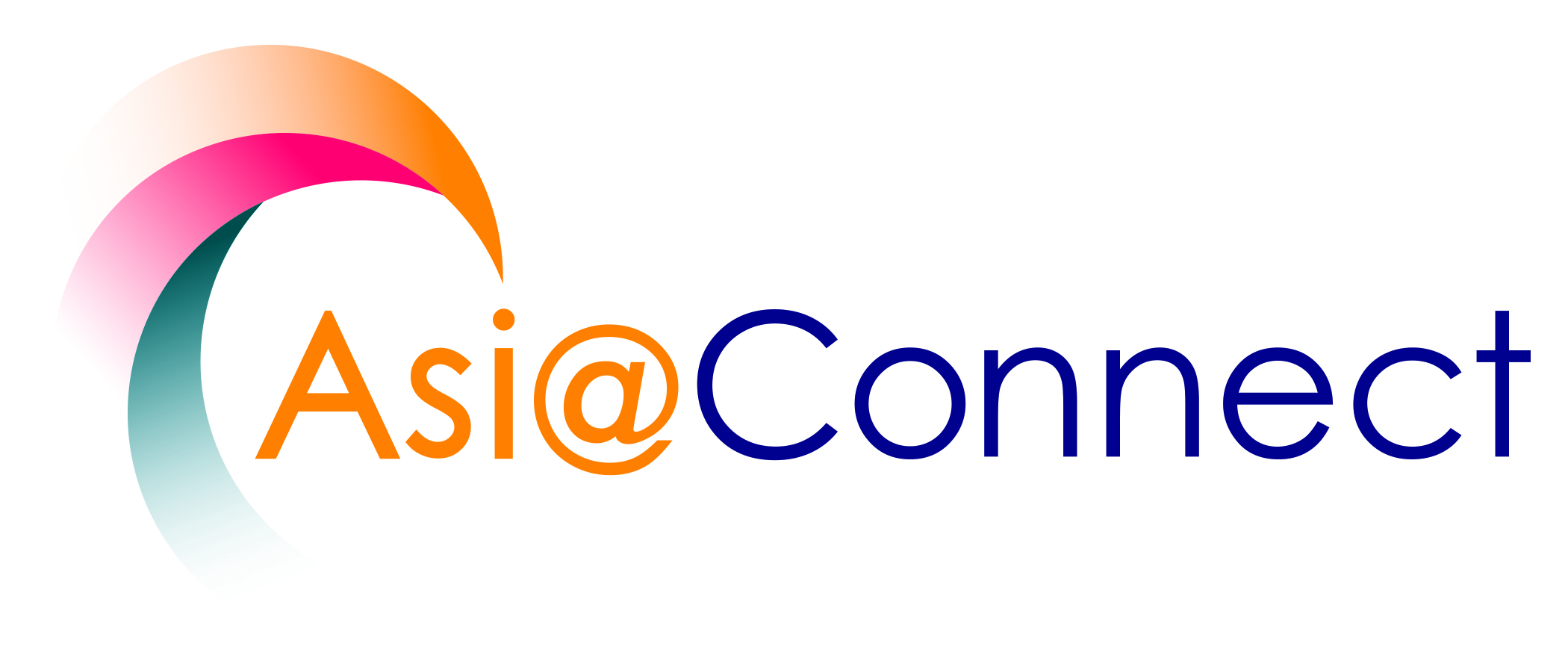
In January 2017, at SANOG 29 in Islamabad, Pakistan, NRSC delivered a Campus Network Design, Operations and Security Workshop for PERN, the Pakistani NREN.
In April 2017, TEIN*CC sponsored shipping costs and NSRC donated equipment that was distributed to 10 universities and institutes across Cambodia in support of CamREN.
Asia@Connect, the successor phase of TEIN4, continues to address capacity building for developing TEIN member countries; NSRC’s expertise continues to be needed to assist these countries and their institutions with building and augmenting affordable, sustainable networks across the Asia-Pacific region.
More information
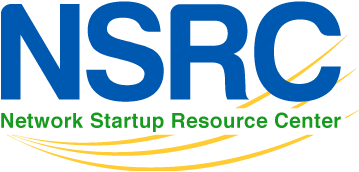
Core funding for the NSRC is provided by the US National Science Foundation’s International Research Network Connections (NSF IRNC) program.


